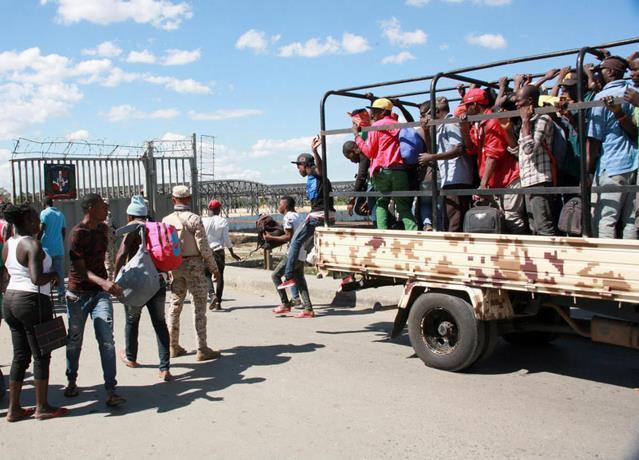The Dominican Republic authorities will actively search for illegal immigrants, the vast majority of Haitians, in order to develop a database that will be shared with all immigration agencies. Security and Immigration.
The Deputy Secretary of Immigration and Citizenship made clear to Efe Thursday that this would be a job of at least 38 offices that would be spread across the country and should be up and running “between this month and December.” Juan Manuel Rosario.
The first two offices opened last Monday, in the border provinces of Dagabon and Elias Peña, just five days after the government announced their creation, as part of a package of measures to curb Haitian immigration.
The authorities’ plan is to create a database that is “very solid” and “as interconnected as possible”, so that the security services, the Ministry of Foreign Affairs and the General Directorate of Foreign Affairs can access it. immigration (DGM), an entity authorized to automatically deport any immigrant in an irregular situation.
The database will collect biometric information, such as fingerprints and photos for facial recognition, with the aim of making it easier to identify Haitian immigrants, many of whom lack any documentation.
Rosario confirmed it “Immigration policy remains the same”Therefore, the General Directorate of the Republic will “continue to do its job” by deporting illegal immigrants.
Meanwhile, the new offices will be dedicated to fulfilling their function of registering “thousands of lawbreakers” in the Dominican Republic.
The role of the offices is to “ensure the security and national security of the citizen,” and it will be implemented “within the framework of the law and within the framework of human rights.”
“We will not violate human rights or anything like that,” the deputy minister emphasized.
Each office will have ten Home Office employees, although they may need additional support “depending on the workload”.
Immigrants will be able to voluntarily register at the office, and if they do not, officials will visit them at their places of residence, according to the deputy minister.
Data will be collected not only from unregistered, but also from immigrants with a residence permit, and in both cases, foreigners will have to notify these offices of any changes in address to other provinces.
In addition, it aims to register residents of cities Haitian border who go to work daily in the Dominican Republic, to ensure that they do not leave the perimeter of the border.
In principle, it is planned to open 38 offices, although consideration is being given to the possibility of increasing this number to more than 40 if necessary.

“Music buff. Social media lover. Web specialist. Analyst. Organizer. Travel trailblazer.”

:quality(85)/cloudfront-us-east-1.images.arcpublishing.com/infobae/TEQF6EONZRFGLLLDIDD4L2O4EE.jpg)

:quality(75)/cloudfront-us-east-1.images.arcpublishing.com/elcomercio/XU32LRAEZFDDPNVHLFU3CKVBYY.jpg)



More Stories
Sheinbaum, Galvez, Mainz campaign wrap-up, news and more
Sheinbaum and Mainz’s CDMX campaign wraps up: Road Alternatives and Street Closures
Ortega attacks Humberto Ortega and declares him a “traitor to the country”